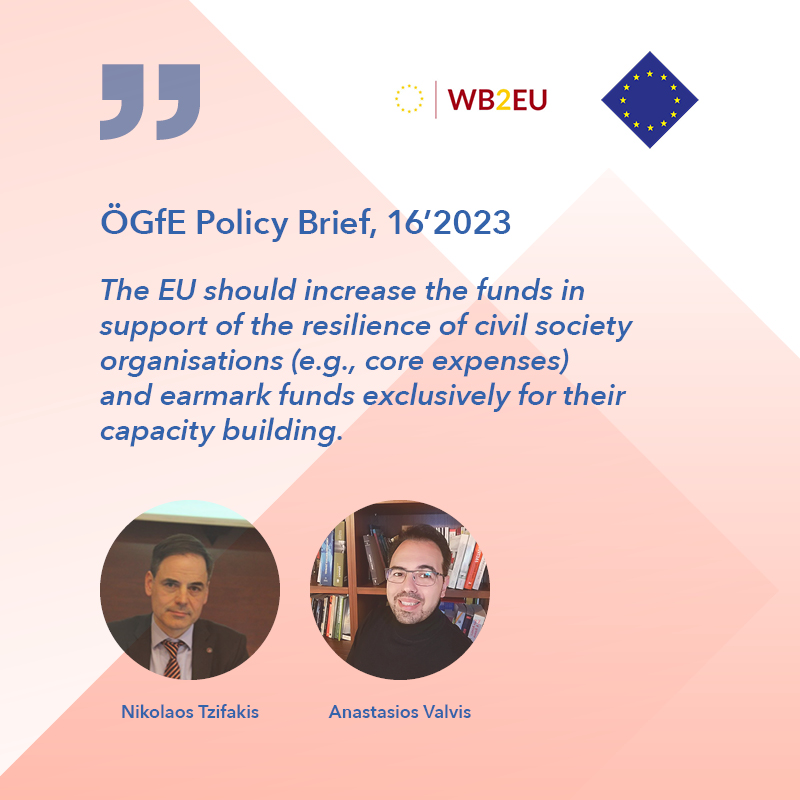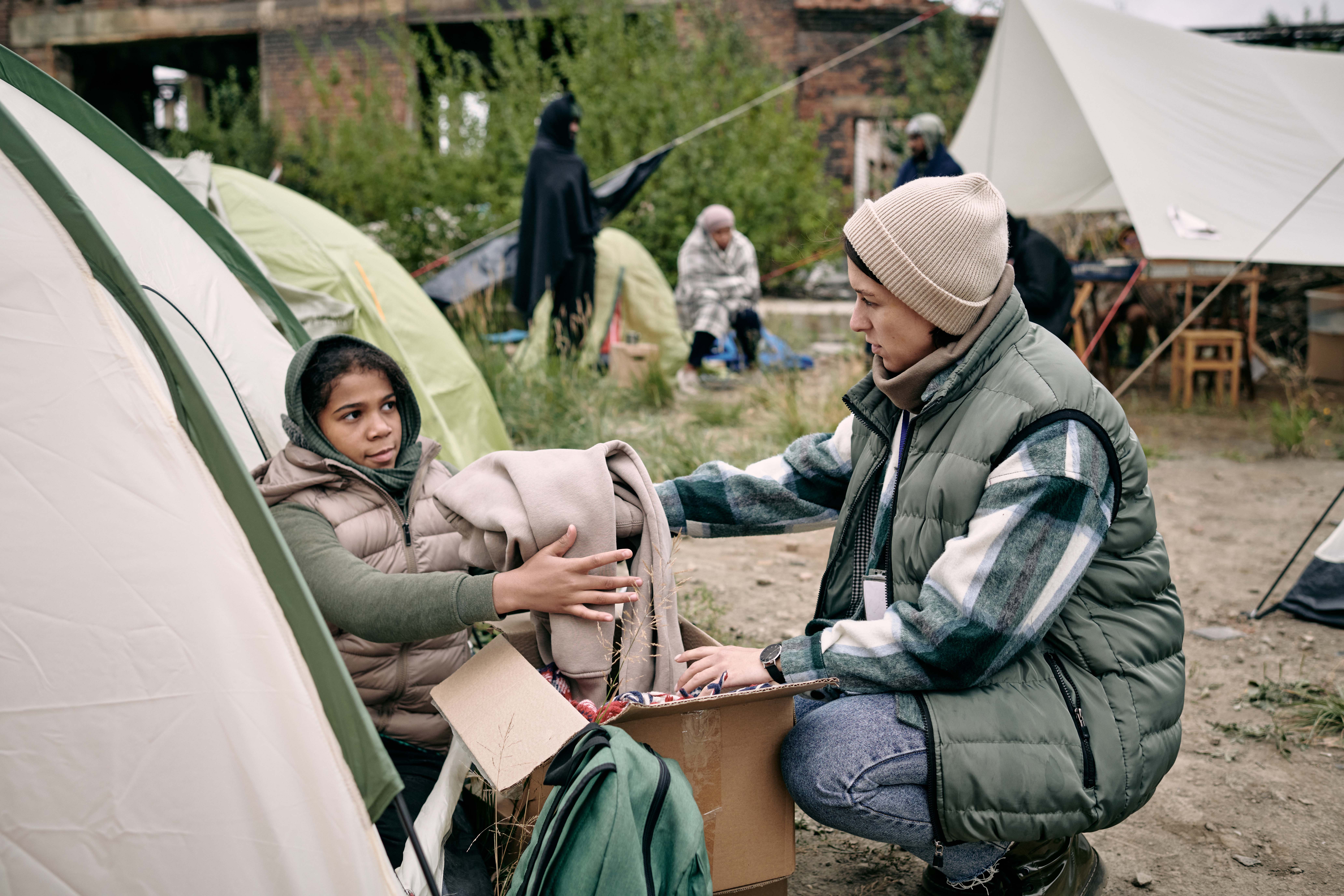A missed opportunity? Civil society organisations in Greece and North Macedonia after the 2015 refugee crisis, Nikolaos Tzifakis & Anastasios Valvis, ÖGfE Policy Brief, 16’2023
When the 2015 refugee crisis broke out, civil societies in Greece and North Macedonia were featuring similar structural weaknesses, such as a lack of professionalism and weak organisational capabilities. In both countries, civil society organisations have benefitted since then from the availability of funding and the interaction and collaboration with international non-profits and donors. Yet, they have failed so far to capitalise on these developments in order to substantially enhance their resilience and sustainability. Nevertheless, prospects for cooperation and joint endeavours do exist and should be investigated further in the future.
Policy Recommendations*
- The EU should increase the funds in support of the resilience of civil society organisations (e.g., core expenses) and earmark funds exclusively for their capacity building.
- Civil society organisations from the two countries should invest in the growth of their human resources, and establish more links with international civil society organisations and transnational advocacy networks.
- Civil society organisations should consider the formation of a platform where non-profits from the two countries may exchange ideas and best practises (e.g., know-how on grants from philanthropic foundations), and explore the possibility of formalising agreements for volunteer and staff exchanges.
* We would like to thank Asteris Huliaras and Sotiris Petropoulos for their insightful comments and suggestions on a previous version of the paper.
Support transnational civil society links and exchanges between Greek and North Macedonian CSOs to encourage the multiplication of collaboration initiatives among the two sides.
Nikolaos Tzifakis & Anastasios Valvis Tweet

Photo: drazenphoto / Envato


